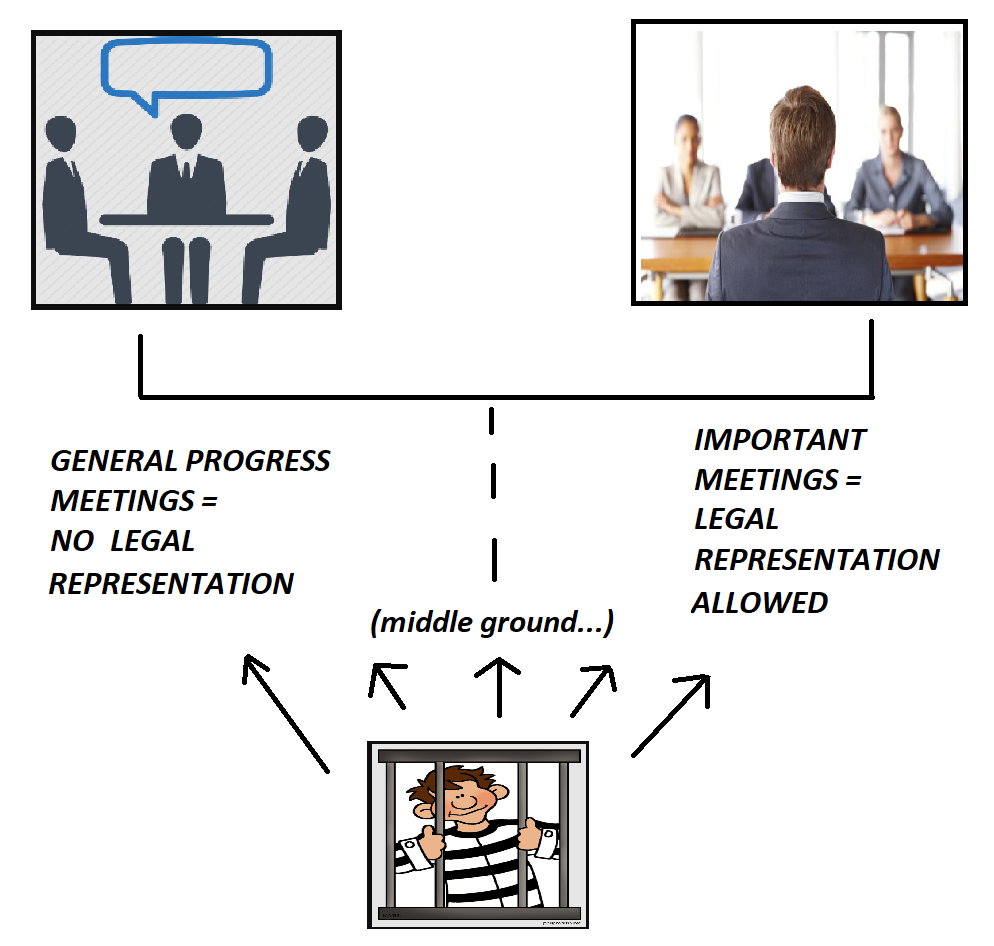R v Board of Visitors of the Maze Prison, ex p. Hone [1987] UKHL 9
Citation:R v Board of Visitors of the Maze Prison, ex p. Hone [1987] UKHL 9
Rule of thumb:Does a prisoner have a right to legal representation in every single meeting with prison staff and in every single parole meeting? No, only in important meetings is there a right to legal representation.
Judgment:
The Court in this case affirmed that prisoners are not entitled to legal representation at all parole hearings, rather than only particularly important hearings. It is to be developed incrementally which type of parole hearings that prisoners are entitled to legal representation at.

Ratio-decidendi:
‘The jurisdiction exercised by the governor is of a more summary nature, and should properly be exercised with great expedition; furthermore the punishments which he can award are limited to those set out in rule 32 of the Rules of 1982 , though he can refer the matter to the Secretary of State (and, through him, to a board of visitors) under rule 33(l)(e) if he considers that it may be desirable that a more severe punishment should be awarded. In the nature of things, it is difficult to imagine that the rules of natural justice would ever require legal representation before the governor. But though the rules of natural justice may require legal representation before a board of visitors, I can see no basis for Mr. Hill's submission that they should do so in every case as of right. Everything must depend on the circumstances of the particular case, as is amply demonstrated by the circumstances so carefully listed by Webster J. in Reg, v. Secretary of State for the Home Department, Ex parte Tarrant [1985] 1 Q.B. 251 as matters which boards of visitors should take into account. But it is easy to envisage circumstances in which the rules of natural justice do not call for representation, even though the disciplinary charge relates to a matter which constitutes in law a crime, as may well happen in the case of a simple assault where no question of law arises, and where the prisoner charged is capable of presenting his own case. To hold otherwise would result in wholly unnecessary delays in many cases, to the detriment of all concerned including the prisoner charged, and to wholly unnecessary waste of time and money, contrary to the public interest. Indeed, to hold otherwise would not only cause injustice to prisoners; it would also lead to an adventitious distinction being drawn between disciplinary offences which happen also to be crimes and those which happen not to be so, for the punishments liable to be imposed do not depend upon any such distinction’.(page 7 – 8) Lord Goff
Warning: This is not professional legal advice. This is not professional legal education advice. Please obtain professional guidance before embarking on any legal course of action. This is just an interpretation of a Judgment by persons of legal insight & varying levels of legal specialism, experience & expertise. Please read the Judgment yourself and form your own interpretation of it with professional assistance.

